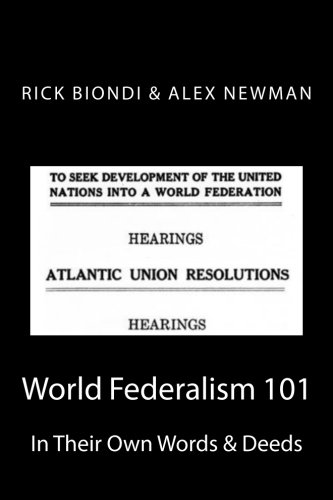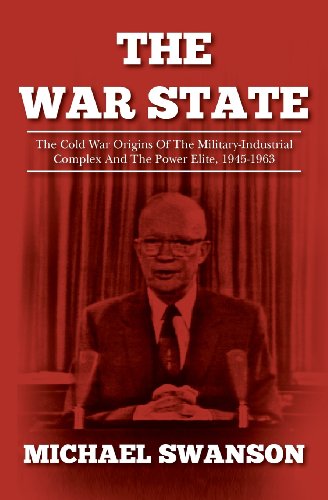With the Likud Party electoral victory in Israel, the Republican Party is on a roll, having won two major elections in a row. The first was winning control of the U.S. Congress last fall. The second is the victory by the Republicans’ de facto party leader Benjamin Netanyahu in Israel’s recent election. As the Israeli Prime Minister puts together a coalition with other parties “in the national camp,” as he describes them, meaning the ultra-nationalist parties of Israel, it will be a coalition that today’s Republicans would feel right at home in.
The common thread linking Republicans and Netanyahu’s “national camp” is a belief of each in their own country’s “exceptionalism,” with a consequent right of military intervention wherever and whenever their “Commander in Chief” orders it, as well as the need for oppressive laws to suppress dissent.
 The Costs of War: Amer...
Best Price: $1.99
Buy New $13.46
(as of 08:00 UTC - Details)
The Costs of War: Amer...
Best Price: $1.99
Buy New $13.46
(as of 08:00 UTC - Details)
William Kristol, neoconservative editor of the Weekly Standard, would agree. Celebrating Netanyahu’s victory, Kristol told the New York Times, “It will strengthen the hawkish types in the Republican Party.” Kristol added that Netanyahu would win the GOP’s nomination, if he could run, because “Republican primary voters are at least as hawkish as the Israeli public.”
The loser in both the Israeli and U.S. elections was the rule of law and real democracy, not the sham democracy presented for public relations purposes in both counties. In both countries today, money controls elections, and as Michael Glennon has written in National Security and Double Government, real power is in the hands of the national security apparatus.
Benjamin Netanyahu’s leadership role in the U.S. Congress was on full display to the world when he accepted House Speaker John Boehner’s invitation to address Congress. Showing their eagerness to be part of any political coalition being formed under Netanyahu’s leadership, many Congressional Democrats also showed their support by attending the speech.
It was left to Israeli Uri Avnery to best capture the spirit of Netanyahu’s enthusiastic ideological supporters in Congress. Avnery wrote that he was reminded of something when seeing “Row upon row of men in suits (and the occasional woman), jumping up and down, up and down, applauding wildly, shouting approval.”
Where had he heard that type of shouting before? Then it came to him: “It was another parliament in the mid-1930s. The Leader was speaking. Rows upon rows of Reichstag members were listening raptly. Every few minutes they jumped up and shouted their approval.”
He added, “the Congress of the United States of America is no Reichstag. Members wear dark suits, not brown shirts. They do not shout ‘Heil’ but something unintelligible.” Nevertheless, “the sound of the shouting had the same effect. Rather shocking.”
 Worshipping the Myths ...
Best Price: $3.99
Buy New $10.40
(as of 05:35 UTC - Details)
Worshipping the Myths ...
Best Price: $3.99
Buy New $10.40
(as of 05:35 UTC - Details)
Right-wing Politics in Pre-Nazi Germany
While Avnery’s analogy of how Congress responded to its de facto leader was apt, it isn’t necessary to go to the extreme example that he uses to analogize today’s right-wing U.S. and Israeli parties and policy to an earlier German precedent. Instead, it is sufficient to note how similar the right-wing parties of Israel and the U.S. of today are to what was known in 1920s Weimar Germany as the Conservative Revolutionary Movement.
This “movement” did not include the Nazis but instead the Nazis were political competitors with the party which largely represented Conservative Revolutionary ideas: the German National People’s Party (DNVP).
The institution to which the Conservative Revolutionaries saw as best representing German “values,” the Reichswehr, the German Army, was also opposed by the Nazis as “competitors” to Ernst Rohm’s Brownshirts. But the Conservative Revolutionary Movement, the DNVP, and the German Army could all be characterized as “proto-fascist,” if not Fascist. In fact, when the Nazis took over Germany, it was with the support of many of the proto-fascists making up the Conservative Revolutionary Movement, as well as those with the DNVP and the Reichswehr.
Consequently, many of the Reichstag members that Uri Avnery refers to above as listening raptly and jumping up and shouting their approval of “The Leader” were not Nazis. The Nazis had failed to obtain an absolute majority on their own and needed the votes of the “national camp,” primarily the German National People’s Party (DNVP), for a Reichstag majority.
The DNVP members would have been cheering The Leader right alongside Nazi members of the Reichstag. DNVP members also voted
 World Federalism 101
Best Price: $16.21
Buy New $16.27
(as of 03:40 UTC - Details)
along with Nazi members in passing the Enabling Act of 1933, which abolished constitutional liberties and dissolved the Reichstag.
World Federalism 101
Best Price: $16.21
Buy New $16.27
(as of 03:40 UTC - Details)
along with Nazi members in passing the Enabling Act of 1933, which abolished constitutional liberties and dissolved the Reichstag.
Not enough has been written on the German Conservative Revolutionary Movement , the DNVP and the Reichswehr because they have too often been seen as victims of the Nazis themselves or, at worst, mere precursors.
The DNVP was the political party which best represented the viewpoint of the German Conservative Revolutionary Movement. The Reichswehr itself, as described in The Nemesis of Power by John W. Wheeler-Bennett, has been called a “state within a state,” much like the intelligence and security services of the U.S. and Israel are today, wielding extraordinary powers.
The Reichswehr was militaristic and anti-democratic in its purest form and indeed was “fascist” in the term’s classic definition of “an authoritarian and nationalistic right-wing system of government and social organization.” Mussolini merely modeled much of his hyper-militaristic political movement on the martial values of the Reichswehr.
German Army officers even had authority to punish civilians for failing to show “proper respect.” In its essence, the viewpoint of the DNVP and the Conservative Revolutionaries was virtually identical to today’s Republican Party along with those Democrats who align with them on national security issues.
These groups have in common a worshipful attitude toward the military as best embodying those martial virtues that are central to fascism. Sister parties, though they may all prefer to be seen as “brothers in arms,” would be Netanyahu’s “national camp” parties.
German Conservative Revolutionary Movement
 The War State: The Col...
Best Price: $25.00
Buy New $14.96
(as of 09:45 UTC - Details)
The War State: The Col...
Best Price: $25.00
Buy New $14.96
(as of 09:45 UTC - Details)
 The Fog of War
Best Price: $1.99
Buy New $12.95
(as of 09:25 UTC - Details)
The Fog of War
Best Price: $1.99
Buy New $12.95
(as of 09:25 UTC - Details)
The Conservative Revolutionary Movement began within the German Right after World War I with a number of writers advocating a nationalist ideology but one in keeping with modern times and not restricted by traditional Prussian conservatism.
It must be noted that Prussian conservatism, standing for militaristic ideas traditional to Prussia, was the antithesis of traditional American conservatism, which professed to stand for upholding the classical liberal ideas of government embedded in the U.S. Constitution.
Inherent to those U.S. constitutional ideas was antipathy toward militarism and militaristic rule of any sort, though Native Americans have good cause to disagree. (In fact, stories of the American conquest of Native Americans with its solution of placing them on reservations were particularly popular in Germany early in the Twentieth Century including with Adolf Hitler).
Historians have noted that when the German Army went to war in World War I, the soldiers and officers carried with them “a shared sense of German superiority and the imagined bestiality of the enemy.” This was manifested particularly harshly upon the citizens of Belgium in 1914 with the German occupation. Later, after their experience in the trenches, the Reichswehr was nearly as harsh in suppressing domestic dissent in Germany after the war.
According to Richard Wolin, in The Seduction of Unreason, Ernst Troeltsch, a German Protestant theologian, “realized that in the course of World War I the ethos of Germanocentrism, as embodied in the ‘ideas of 1914,’ had assumed a heightened stridency.” Under the peace of the Versailles Treaty, “instead of muting the idiom of German exceptionalism that Troeltsch viewed with such mistrust, it seemed only to fan its flames.”
 Freedom Betrayed: Herb...
Best Price: $28.84
Buy New $49.94
(as of 03:15 UTC - Details)
Freedom Betrayed: Herb...
Best Price: $28.84
Buy New $49.94
(as of 03:15 UTC - Details)
This belief in German “exceptionalism” was the common belief of German Conservative Revolutionaries, the DNVP and the Reichswehr. For Republicans of today and those who share their ideological belief, substitute “American” for “German” Exceptionalism and you have the identical ideology.
“Exceptionalism” in the sense of a nation can be understood in two ways. One is a belief in the nation’s superiority to others. The other way is the belief that the “exceptional” nation stands above the law, similar to the claim made by dictators in declaring martial law or a state of emergency. The U.S. and Israel exhibit both forms of this belief.





